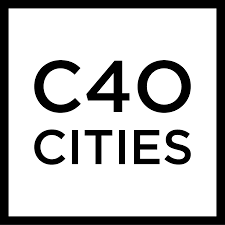
https://www.c40.org/news/clean-air-zones-a-win-for-people-and-the-planet/
Paris 2024 aims to produce 50% fewer greenhouse gases than the previous two summer Olympics. Measures to achieve this include reducing construction and food-related emissions, and leveraging the Games to dedicate more street space to people walking, cycling and taking public transport, in a city where 65% of residents don’t own a car.
The event will be a “compact Games,” with 85% of athletes staying less than 30 minutes from their competition sites and no new parking spaces for venues. This strategy builds on Paris’s development of the “15-minute city,” a concept that aims to enable everyone to meet all daily needs within a 15-minute walk or bike ride from home, thus reducing reliance on cars and fossil fuels. Hidalgo has returned over 200 streets back to people by prohibiting cars, transformed 60,000 car parking spaces into cycle parking or public places that can be used by many more people, and constructed 1,300 kilometres of bike lanes. Additionally, Parisians recently voted to triple parking charges for SUVs, in an effort to improve road safety and reduce noise pollution.
What Mayor Hidalgo is achieving in Paris has been an inspiration for cities around the world, and today, C40 is launching the “It’s in the Air” campaign, which will run from the start of the Olympic Games until Clean Air Day on September 7th. This campaign underscores our commitment to people-centred urban planning with ‘streets for people’ activities taking place in cities worldwide. Highlights include street closures and cargo bike rides in Seattle, sports and cultural events in Stockholm and Quito, and community workshops in Bogotá and Johannesburg. Over 30 C40 cities are working to establish or expand clean air zones by 2030, aiming to improve air quality by expanding public transport, enhancing walking and cycling infrastructure, and reducing the presence of the most polluting vehicles.
The recent decision by the New York State governor to ‘pause’ congestion pricing in New York City stands out in isolation against this trend, and it is noteworthy that the decision was taken at a regional, rather than city level. As someone who was centrally involved in bringing in London’s congestion charge 20 years ago, I still haven’t seen a stronger tool for incentivising car drivers to try more sustainable modes of travel, or for raising money to pay for extra bus services, cycle lanes and safer streets. Leaders close to city residents understand the huge gains to be had from such transformational action.
Evidence shows that green policies are not only necessary but popular. Recent polling for C40 in seven cities on five continents found more than eighty per cent of people believed their city leaders should be prioritising clean air. In Paris, the majority of residents support Mayor Hidalgo’s green transport initiatives. Similarly, in London Mayor Sadiq Khan won a landslide victory and a historic third term this year following his expansion of London’s Clean Air Zone (ULEZ)- the world’s largest 24h zone. This was despite well-funded misinformation campaigns by his opponents, who succeeded in making ULEZ the pivotal issue in the mayoral election, only to discover that far more Londoners backed the policy than were seduced by their lies and distortions. At the national level, the UK’s Labour party won a huge majority of parliamentary seats at the general election earlier this month, where the party’s green policies stood in stark contrast to that of the outgoing government, and which surveys suggest were part of its success with voters. The message is clear: voters are looking to leaders who will deliver climate action.
The popularity of green policies can be attributed to their tangible benefits. In Paris, Mayor Hidalgo’s low-carbon transport measures have led to a 40% reduction in air pollution. In London, new data released today shows the expanded Clean Air Zone is working, with London’s air quality continuing to improve at a faster rate than the rest of England and pollutant emissions in 2023 reducing dramatically, compared to a scenario without the London-wide expansion. Beyond measurable outcomes, these policies significantly enhance the quality of city life. I vividly recall my first visit to Paris after Mayor Hidalgo bravely replaced a four-lane highway that had disfigured the banks of the Seine with pedestrian walkways; the area transformed from a noisy and polluted thoroughfare that only those who had no choice would brave walking through, to a vibrant and green public space, filled with people taking lunch breaks, meeting for after work drinks, or just pausing to take in the beauty of the city architecture. People, as opposed to companies that sell motor vehicles or petrol to fuel them, prefer cities designed as pleasant places to live, not merely to traverse in cars.
While green measures are increasingly used as a wedge issue by populists seeking to stimulate opposition from a loud minority, our experience shows that the silent majority approve, and even those who were initially unsure tend to become accepting over time. Opposition peaks as implementation approaches, but once policies are in place and their benefits become evident, support typically rebounds. The examples of trailblazing mayors such as Anne Hidalgo and Sadiq Khan demonstrate that green policies not only deliver results and improve people’s lives but also win voter approval.
That doesn’t mean it’s been easy for these pioneers. Mayor Hidalgo faced down opposition from the car lobby to realise her vision of what a clean and people-centred city could be. Mayor Khan overcame a well-funded misinformation campaign against him. Their successes prove that it’s possible to challenge entrenched interests and prevail—for the benefit of ordinary people and the planet. I am looking forward to the whole world seeing the benefits when the 2024 Olympics arrive in Paris!









